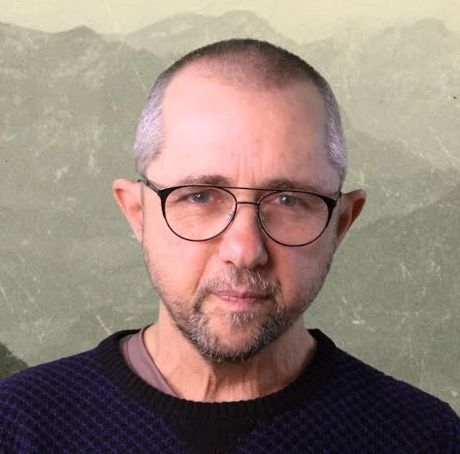Brian Falkner

Born in Auckland, New Zealand, Brian Falkner wanted to be an author ever since he was a child. It took him only thirty years to realize that dream. Along the way he studied computer science and journalism, then worked as a reporter, advertising copywriter, radio announcer, graphic designer and internet developer.
Now an award-winning author, Brian has had more than twenty novels published internationally. He has won the NZ Children and Young Adult YA Book Award, the Ngaio Marsh YA Award and the Sir Julius Vogel Science Fiction YA Book Award. He is also an internationally acclaimed writing coach, running workshops and writing camps around Australia, New Zealand and the USA.
He lives with his wife on the sunny Gold Coast of Queensland, Australia. He can be found at www.brianfalkner.com, www.writelikeanauthor.com and www.drawlikeanartist.com.
Q: Sci-fi thrillers would seem to come naturally to someone with both a computer science and writing background. How important is the science training to deepening your research, ensuring authenticity and keeping your imagination primed?
A: To be honest, my computer science studies were so long ago that they might as well be carved into a cave wall. But my interest in technology has never faltered and I am always looking at new technologies and wondering how they might be used in the future. In this way I am like a child, full of wonder at the world around me.
Research is a huge part of all my novels, whether a WWII spy thriller or a full-on science fiction alien invasion series. As I often tell my writing students, it isn’t what you know, or even what you don’t know that matters; it is what you don’t know you don’t know. Research always uncovers surprising things that you didn’t know you didn’t know, and those lead to other surprises. It is amazing how your mind starts working once you start researching and the synchronicities that can result.
To give a specific example, in my alt history Rampage at Waterloo series, which features dinosaurs during the Napoleonic Wars, I needed to come up with a time-appropriate technology that would allow a rider to steer a wild dinosaur. (Napoleon Bonaparte has assembled an army of dinosaurs, but he needs to be able to control them.)
I had the idea of using electricity, embedding electrodes in the dinosaur’s skull and giving it small electric shocks. But to do that they would have to have a battery, and I wasn’t even sure if batteries were invented during that time. So…. research. It turns out that the battery was invented by Italian physicist Alessandro Volta in 1800, who presented it to, guess who? Napoleon Bonaparte! Napoleon even made him a count in honour of his invention.
You gotta love research!
Q: What adventurous hobbies do you have besides scuba diving, and how does that help you plot and write your novels?
A: Hmmm, I gave up scuba diving a few years ago. I’m not as young as I used to be, although I may one day get back into it. Travel is my main weapon when it comes to plotting novels, although that hasn’t been easy over the last couple of years. For example, when planning Brainjack, part of which is set in the atomic rubble of Las Vegas, I traveled to that city and wandered around marvelling at all the glittering lights, while imagining how I was going to destroy it!
Q: You seem be surfing a wave of popularity for techno-thrillers. Can you talk about why teens love them and whether they’re key to drawing kids (especially boys?) off their electronic devices and into a book now and again?
A: I do love techo-thrillers. I am working on another one as we speak. Fingers crossed that it finds a home at a publisher. I don’t think it’s a secret that both boys and girls nowadays love technology; they are all digital natives now, so extending that interest into the future, and making it into an exciting adventure seems a natural thing to do. However, overall I think the key to drawing kids off their devices is strong characters and stories. Harry Potter is the prime example. It was massive not because of the concept, which has been done before (and since), but because of the wonderful characters. Hermione, Ron, Hagrid, Dumbledore, Harry himself, even Vol…. well maybe not him. (Actually, a really strong villain is a huge part of the appeal,) Then there is the story, always exciting, imaginative and fast moving. So, my fervent belief, and my aim in my writing, is to create characters that the reader will love and remember, then put them into situations that will have the reader holding their breath, in a story that takes the reader on a journey at a fast pace.
Easier said than done.
Q: What moral lessons are you subtly embedding in your novels, if any?
A: None intentionally, probably a lot subconsciously. Every novel carries the lifeblood and the moral compass of the author, thematically, emotionally or sometimes explicitly. I like to think that I have a strong moral compass and I am sure that my characters carry that through in their thoughts and actions.
Q: Is it ever awkward switching from novels for young kids to novels for young adults, or is there an advantage to churning out both? And which do you prefer?
A: I don’t find this awkward at all. I just start writing, and the story finds its place. When I have tried to force it, it hasn’t worked. For example, I recently started writing a book that I wanted to be middle grade, or even junior fiction, but by about chapter four it was clear that it was a YA novel, so I had to go back and rewrite the opening chapters.
Q: As a highly successful writing workshop coordinator, what tips can you offer young writers to get unstuck and thrive?
A: The number one piece of advice I give to all my students is the importance of getting the reader to care about the characters. If the reader doesn’t care about the characters, then they won’t care what happens to them and you might as well all go home.
How you do that is the real magic of writing, and not something I could quickly cover here, although I try to pass on a lot of tricks and techniques in my workshops.
The other piece of advice, specifically relating to not getting stuck, is to simply not allow yourself to get stuck. If you are, mark the place somehow (I use ****** which is easy to search for later) and move on. Then later, go back and spend some more time on the places where you got stuck.
